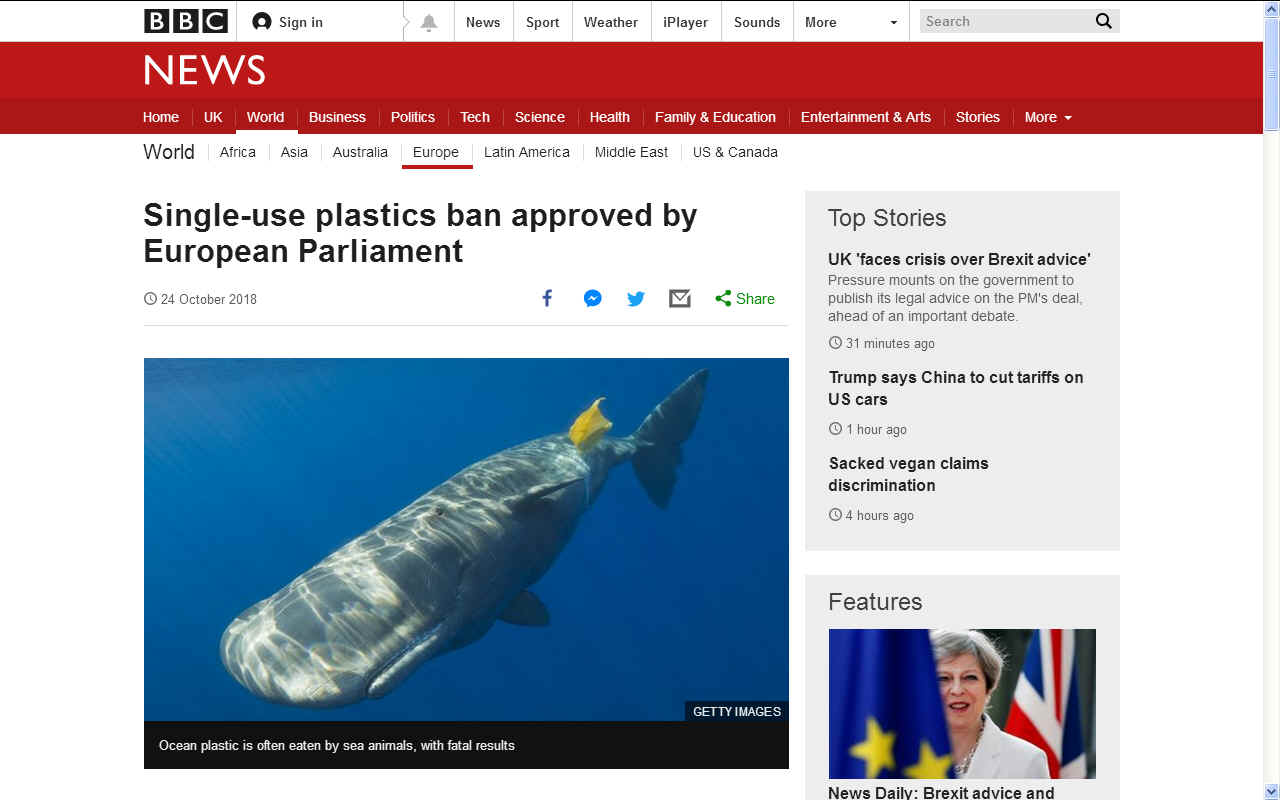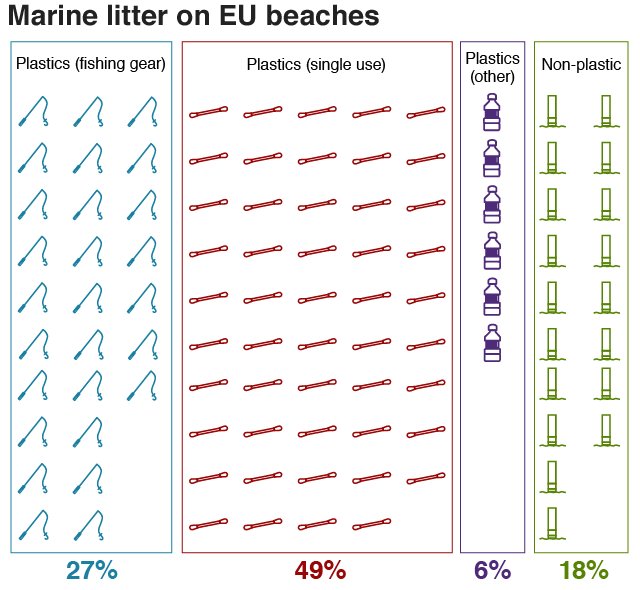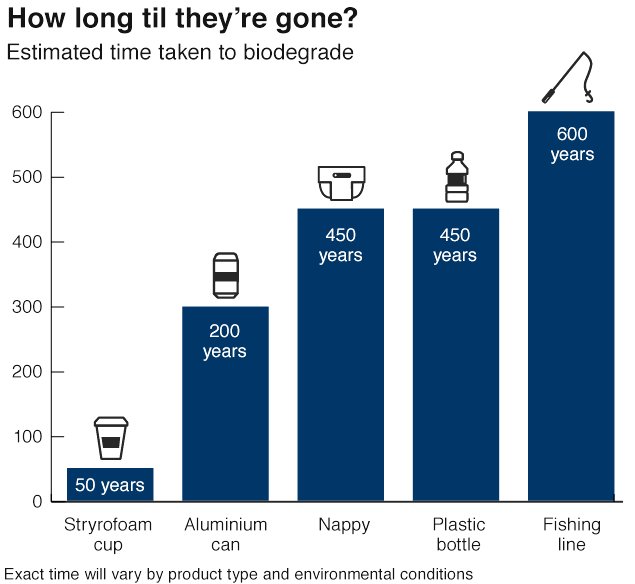|
EUROPEAN PARLIAMENT BANS PLASTIC
ABOUT - CONTACTS - DONATE - FOUNDATION - HOME - A-Z INDEX
STATISTICS - What was on the beaches in the EU in 2016. In the UK we regularly clean our beaches thanks to the Marine Conservation Society.
HOW LONG TO DEGRADE - We'll not be clear of plastic for many generations to come. Think of the marine life that will affect and how that may come back to bite us. For this reason we need ocean cleaning machines like SeaVax.
What's being banned?
A-Z COMMISSIONER LISTING
Andriukaitis, Vytenis Ansip, Andrus Avramopoulos, Dimitris Bieńkowska, Elżbieta Bulc, Violeta Cañete, Miguel Arias Crețu, Corina Dombrovskis, Valdis Gabriel, Mariya Hahn, Johannes Hogan, Phil Jourová, Věra Juncker, Jean-Claude Katainen, Jyrki King, Julian Malmström, Cecilia Mimica, Neven Moedas, Carlos Mogherini, Federica Moscovici,
Pierre Oettinger,
Günther H. Stylianides, Christos Thyssen, Marianne Timmermans,
Frans
The European Maritime Day (EMD) is the annual meeting point for Europe’s maritime community to network, discuss, and forge joint action, in support of an integrated approach to maritime affairs. It is an inspiring, interactive and dynamic event with a strong focus on key European Commission priorities. The EMD event was officially created on 20 May 2008 and since then is celebrated annually across Europe on 20 May.
EUROPEAN MARITIME DAY THEMES
* Brussels 2008: "A regional approach to the implementation of Maritime Policy" * Rome 2009: "Integrated Maritime Policy and the contribution of maritime clusters" * Gijón 2010: "How to foster innovation?" * Gdansk 2011: "Maritime Policy: Putting People First" * Gothenburg 2012: "Sustainable Growth from the Oceans, Seas and Coasts" * Valletta 2013: "Coastal Development and Sustainable Maritime Tourism" * Bremen 2014: "Innovation driving Blue Growth" * Piraeus 2015: "Ports and Coasts, Gateways to Maritime Growth" * Turku 2016: "Investing in blue growth – smart and sustainable solutions" * Poole 2017: "The Future of our Seas" * Burgas 2018: Bulgaria "TBA" * Lisbon 2019: Portugal "TBA" * Cork 2020: Ireland "TBA" * Den Helder 2021: The Netherlands "TBA" * Ravenna 2022: Italy "TBA" * Brest 2023: France "TBA" * Svendborg 2024: Denmark "TBA"
The main event of any EMD is the European Maritime Day conference, held in a different region with a different theme each year. The EMD conference includes plenary sessions (with the participation of high level and key-experts), stakeholder workshops as well as B2B matchmaking meetings and an exhibition. It attracts regularly more than 1000 participants - policy-makers, maritime stakeholders, industry professionals and NGOs - from across the EU. For more information about European Maritime Day, please visit the EU's website:
EC PRESS CONTACTS: Email: lucia.caudet@ec.europa.eu Tel
+32 2 295 61 82 Victoria VON HAMMERSTEIN-GESMOLD Email: victoria.von-hammerstein-gesmold@ec.europa.eu Tel:
+32 2 295 50 40
LINKS & REFERENCE
hhttps://www.bbc.co.uk/news/world-europe-45965605 https://ec.europa.eu/
This website is provided on a free basis as a public information service. copyright © Cleaner Oceans Foundation Ltd (COFL) (Company No: 4674774) 2018. Solar Studios, BN271RF, United Kingdom. COFL is a charity without share capital. The names AmphiMax™, RiverVax™ and SeaVax™ are trade names used under license by COF in connection with their 'Feed The World' ocean cleaning sustainability campaign.
|































